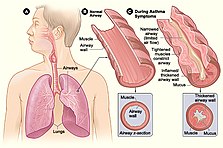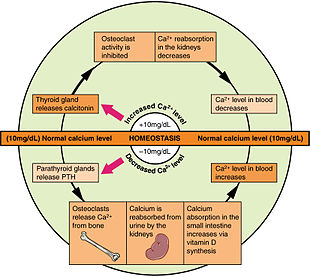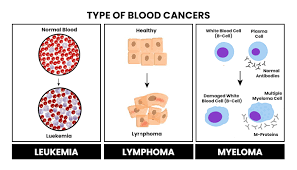We're for all- ALL are for us for the greater interest of Humanism-Truth-Facts-Friendship-Unity-Participation including Physico-Mental Sound Health with Spirituality enrichment through ''TOTAL HEALTH SOLUTION'' to a Well-furnished GOALofTruth alloted for all in real sense ;
From wikipedia & other reliable sources ( Poets, Writers, Thinkers, Researchers, Free Lancers, Philosophers, Theologists, Scientists, Orators, Sociologists and Photographers +Artists-Musicians & etc.) we can learn as follows :
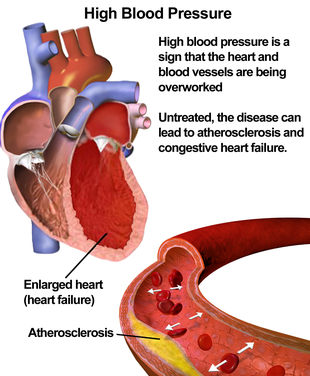
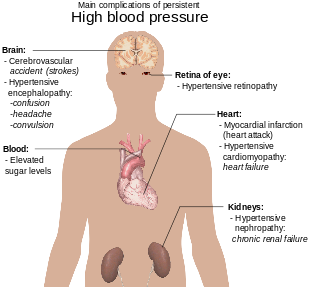
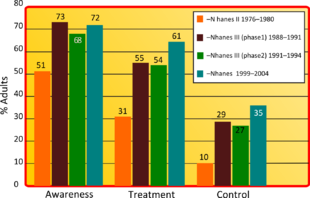
''Hypertension is a disease of heart occuring from so many reaonable sources and causes in our body organ including chemical transformation for inter-relation support+++.
Hypertension (HTN or HT), also known as high blood pressure (HBP), is a long-term medical condition in which the blood pressure in the arteries is persistently elevated.[11] High blood pressure usually does not cause symptoms.[1] Long-term high blood pressure, however, is a major risk factor for stroke, coronary artery disease, heart failure, atrial fibrillation, peripheral arterial disease, vision loss, chronic kidney disease, and dementia.[2][3][4][12] Hypertension is a major cause of premature death worldwide.[13]
High blood pressure is classified as primary (essential) hypertension or secondary hypertension.[5] About 90–95% of cases are primary, defined as high blood pressure due to nonspecific lifestyle and genetic factors.[5][6] Lifestyle factors that increase the risk include excess salt in the diet, excess body weight, smoking, and alcohol use.[1][5] The remaining 5–10% of cases are categorized as secondary high blood pressure, defined as high blood pressure due to an identifiable cause, such as chronic kidney disease, narrowing of the kidney arteries, an endocrine disorder, or the use of birth control pills.[5]
Blood pressure is classified by two measurements, the systolic and diastolic pressures, which are the maximum and minimum pressures, respectively.[1] For most adults, normal blood pressure at rest is within the range of 100–130 millimeters mercury (mmHg) systolic and 60–80 mmHg diastolic.[8][14] For most adults, high blood pressure is present if the resting blood pressure is persistently at or above 130/80 or 140/90 mmHg.[5][8] Different numbers apply to children.[15] Ambulatory blood pressure monitoring over a 24-hour period appears more accurate than office-based blood pressure measurement.[5][11]
Lifestyle changes and medications can lower blood pressure and decrease the risk of health complications.[9] Lifestyle changes include weight loss, physical exercise, decreased salt intake, reducing alcohol intake, and a healthy diet.[5] If lifestyle changes are not sufficient, then blood pressure medications are used.[9] Up to three medications taken concurrently can control blood pressure in 90% of people.[5] The treatment of moderately high arterial blood pressure (defined as >160/100 mmHg) with medications is associated with an improved life expectancy.[16] The effect of treatment of blood pressure between 130/80 mmHg and 160/100 mmHg is less clear, with some reviews finding benefit[8][17][18] and others finding unclear benefit.[19][20][21] High blood pressure affects between 16 and 37% of the population globally.[5] In 2010 hypertension was believed to have been a factor in 18% of all deaths (9.4 million globally)
SO, BASED ON ABOVE DISCUSSION- WE SHOULD CONSCIOUS ABOUT HEART and
Prevention[edit]--Much of the disease burden of high blood pressure is experienced by people who are not labeled as hypertensive.[94] Consequently, population strategies are required to reduce the consequences of high blood pressure and reduce the need for antihypertensive medications. Lifestyle changes are recommended to lower blood pressure, before starting medications. The 2004 British Hypertension Society guidelines[94] proposed lifestyle changes consistent with those outlined by the US National High BP Education Program in 2002[104] for the primary prevention of hypertension:
- maintain normal body weight for adults (e.g. body mass index 20–25 kg/m2)
- reduce dietary sodium intake to <100 mmol/ day (<6 g of sodium chloride or <2.4 g of sodium per day)
- engage in regular aerobic physical activity such as brisk walking (≥30 min per day, most days of the week)
- limit alcohol consumption to no more than 3 units/day in men and no more than 2 units/day in women
- consume a diet rich in fruit and vegetables (e.g. at least five portions per day);
- Stress reduction[105]
Avoiding or learning to manage stress can help a person control blood pressure.
A few relaxation techniques that can help relieve stress are:
- meditation
- warm baths
- yoga
- going on long walks[105]
Effective lifestyle modification may lower blood pressure as much as an individual antihypertensive medication. Combinations of two or more lifestyle modifications can achieve even better results.[94] There is considerable evidence that reducing dietary salt intake lowers blood pressure, but whether this translates into a reduction in mortality and cardiovascular disease remains uncertain.[106] Estimated sodium intake ≥6g/day and <3g/day are both associated with high risk of death or major cardiovascular disease, but the association between high sodium intake and adverse outcomes is only observed in people with hypertension.[107] Consequently, in the absence of results from randomized controlled trials, the wisdom of reducing levels of dietary salt intake below 3g/day has been questioned.[106] ESC guidelines mention periodontitis is associated with poor cardiovascular health status.[108]
[edit]Management of hypertension
According to one review published in 2003, reduction of the blood pressure by 5 mmHg can decrease the risk of stroke by 34%, of ischemic heart disease by 21%, and reduce the likelihood of dementia, heart failure, and mortality from cardiovascular disease.[109]
Target blood pressure[edit]-- Comparison of international blood pressure guidelines
Various expert groups have produced guidelines regarding how low the blood pressure target should be when a person is treated for hypertension. These groups recommend a target below the range 140–160 / 90–100 mmHg for the general population.[14][15][110][111] Cochrane reviews recommend similar targets for subgroups such as people with diabetes[112] and people with prior cardiovascular disease.[113][needs update] Additionally, Cochrane reviews have found that for older individuals with moderate to high cardiovascular risk, the benefits of trying to achieve a lower than standard blood pressure target (at or below 140/90 mmHg) are outweighed by the risk associated with the intervention.[114] These findings may not be applicable to other populations.[114]
Many expert groups recommend a slightly higher target of 150/90 mmHg for those over somewhere between 60 and 80 years of age.[14][110][111][115] The JNC-8 and American College of Physicians recommend the target of 150/90 mmHg for those over 60 years of age,[15][116] but some experts within these groups disagree with this recommendation.[117] Some expert groups have also recommended slightly lower targets in those with diabetes[14] or chronic kidney disease with protein loss in the urine,[118] but others recommend the same target as for the general population.[15][112] The issue of what is the best target and whether targets should differ for high risk individuals is unresolved,[119] although some experts propose more intensive blood pressure lowering than advocated in some guidelines.[120]
For people who have never experienced cardiovascular disease who are at a 10-year risk of cardiovascular disease of less than 10%, the 2017 American Heart Association guidelines recommend medications if the systolic blood pressure is >140 mmHg or if the diastolic BP is >90 mmHg.[8] For people who have experienced cardiovascular disease or those who are at a 10-year risk of cardiovascular disease of greater than 10%, it recommends medications if the systolic blood pressure is >130 mmHg or if the diastolic BP is >80 mmHg.[8]
Lifestyle -edit
The first line of treatment for hypertension is lifestyle changes, including dietary changes, physical exercise, and weight loss. Though these have all been recommended in scientific advisories,[121] a Cochrane systematic review found no evidence for effects of weight loss diets on death, long-term complications or adverse events in persons with hypertension.[122] The review did find a decrease in body weight and blood pressure.[122] Their potential effectiveness is similar to and at times exceeds a single medication.[14] If hypertension is high enough to justify immediate use of medications, lifestyle changes are still recommended in conjunction with medication.
Dietary changes shown to reduce blood pressure include diets with low sodium,[123][124] the DASH diet (Dietary Approaches to Stop Hypertension),[125] which was the best against 11 other diet in an umbrella review,[126] and plant-based diets.[127] There is some evidence green tea consumption may help lower blood pressure, but this is insufficient for it to be recommended as a treatment.[128] There is evidence from randomized, double-blind, placebo-controlled clinical trials that Hibiscus tea consumption significantly reduces systolic blood pressure (-4.71 mmHg, 95% CI [-7.87, -1.55]) and diastolic blood pressure (-4.08 mmHg, 95% CI [-6.48, -1.67]).[129][130] Beetroot juice consumption also significantly lowers the blood pressure of people with high blood pressure.[131][132][133]
Increasing dietary potassium has a potential benefit for lowering the risk of hypertension.[134][135] The 2015 Dietary Guidelines Advisory Committee (DGAC) stated that potassium is one of the shortfall nutrients which is under-consumed in the United States.[136] However, people who take certain antihypertensive medications (such as ACE-inhibitors or ARBs) should not take potassium supplements or potassium-enriched salts due to the risk of high levels of potassium.[137]
Physical exercise regimens which are shown to reduce blood pressure include isometric resistance exercise, aerobic exercise, resistance exercise, and device-guided breathing.[138]
Stress reduction techniques such as biofeedback or transcendental meditation may be considered as an add-on to other treatments to reduce hypertension, but do not have evidence for preventing cardiovascular disease on their own.[138][139][140] Self-monitoring and appointment reminders might support the use of other strategies to improve blood pressure control, but need further evaluation.[141]
Medications[edit-- Several classes of medications, collectively referred to as antihypertensive medications, are available for treating hypertension.
First-line medications for hypertension include thiazide-diuretics, calcium channel blockers, angiotensin converting enzyme inhibitors (ACE inhibitors), and angiotensin receptor blockers (ARBs).[142][15] These medications may be used alone or in combination (ACE inhibitors and ARBs are not recommended for use in combination); the latter option may serve to minimize counter-regulatory mechanisms that act to restore blood pressure values to pre-treatment levels.[15][143] Most people require more than one medication to control their hypertension.[121] Medications for blood pressure control should be implemented by a stepped care approach when target levels are not reached.[141]
Previously beta-blockers such as atenolol were thought to have similar beneficial effects when used as first-line therapy for hypertension. However, a Cochrane review that included 13 trials found that the effects of beta-blockers are inferior to that of other antihypertensive medications in preventing cardiovascular disease.[144]
Resistant hypertension is defined as high blood pressure that remains above a target level, in spite of being prescribed three or more antihypertensive drugs simultaneously with different mechanisms of action.[145] Failing to take prescribed medications as directed is an important cause of resistant hypertension.[146] Resistant hypertension may also result from chronically high activity of the autonomic nervous system, an effect known as neurogenic hypertension.[147] Electrical therapies that stimulate the baroreflex are being studied as an option for lowering blood pressure in people in this situation.[148]
Some common secondary causes of resistant hypertension include obstructive sleep apnea, pheochromocytoma, renal artery stenosis, coarctation of the aorta, and primary aldosteronism.[149] As many as one in five people with resistant hypertension have primary aldosteronism, which is a treatable and sometimes curable condition.[150]
Non-modulating essential hypertension is a form of salt-sensitive hypertension, where sodium intake does not modulate either adrenal or renal vascular responses to angiotensin II. Individuals with this subset have been termed non-modulators.[153] They make up 25–30% of the hypertensive population''.
We're for all- ALL are for us for the greater interest of Humanism-Truth-Facts-Friendship-Unity-Participation to a Well-furnished GOAL of Truth from which all shall have ++++;
We're indebted to WIKIPEDIA +WHO for a short while and as 'Guardian QUOTATION' from Global WISER ONE. And have quoted many images, article's, writings etc. by great & humanist writers+++ from global thinkers, Well-wishers, Wiseman, Humanists and Others Living-Nonlivings in favor of HUMANISM to share more answers of Researchers-readers+++++....
To reach the 'GOAL of FULFILNESS' unitedly to alive in the "DESTINATION of TRUTH-FACTS-CHARMEST AMICABLITY" of Natural Joyful POSSIBILITIES+++
BREAST CANCER, TUMOR, Arsenic+Chemical Poisoning, Corona, Heart-Lung diseases, Neurological-Hormonal-Immunal-Infectious diseases with related complexities are possible to cure properly-easily-scientifically-accurately (100%) by our positive medical services only with+++++balance confirming
Medicine-Food control-proper nursing-medicinal massage-Medicinal Yogas- Meditation, Physiotherapy special etc. without side effects & Repeatation as per contract through user-friendly approved ways of CURE++++. please fill our form as below or click:
After confirming contract-letter between you+++. We serve you properly with no Chemo-therapy-radiation therapy -SURGICAL Complexities (Physical-Mental) to CURE+++ upto our Limit to recover your both-health from illness.


















